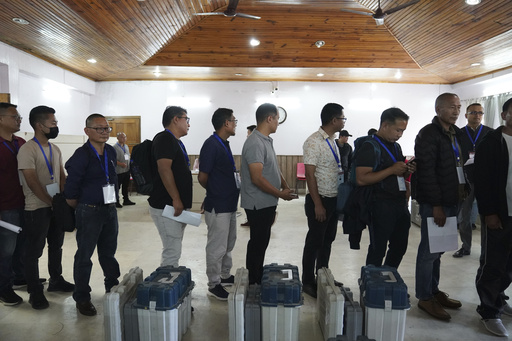
The general election in India is underway as Prime Minister Modi runs for a third term
To win a third term, Prime Minister Modi of India has pledged to elevate his country’s economy to the top three in the world.
The largest election in history began on Friday in India, where Prime Minister Narendra Modi is running for a historic third term in office.
A coalition of opposition parties will fiercely compete with Modi’s Bharatiya Janata Party (BJP), offering voters radically divergent perspectives on the future of the nation.
Nearly one billion voters will participate in the massive voting process, which will take place over seven phases across India and end on June 4 with vote counting. Beginning on Friday, the first phase will cover 102 constituencies located in 21 states and territories, ranging from the northern state of Uttar Pradesh to the southern area of Tamil Nadu.
Notwithstanding stringent security protocols, a sizable turnout of voters—including elderly and first-time voters—showed up to cast their ballots. Numerous people voiced a range of worries, including everything from unemployment to the overall effectiveness of Modi’s regime.
Debate has centered on Modi’s Hindu nationalist agenda, which has been a defining feature of his reign. Nevertheless, other voters—like Abdul Sattar from Uttar Pradesh—think that Modi’s record on security and safety surpasses any religious factors. Some, like Mohammed Shabbir, place a higher priority on material problems like unemployment than religious identity.
Even if economic issues like inflation and unemployment are causing a lot of people to worry, polls indicate that the BJP is expected to win easily. The party’s “Modi Ki Guarantee” electoral manifesto, which promises to fulfill voter promises and move India into the top three economies in the world, highlights its leader-centric philosophy.
Both praise and criticism have been directed towards Modi’s candidacy. His admirers point to accomplishments like India’s lunar landing and anti-corruption initiatives, while his detractors charge that the government singles out Muslims and other minorities in order to curry favor with the Hindu majority.
Rahul Gandhi of the Congress party leads the opposition alliance, which portrays the election as an intellectual struggle to save democracy and constitutional principles.
Both the opposition and the BJP are up against obstacles as the election progresses. As the BJP strives for a historic triumph, the opposition finds it difficult to come together and launch a convincing campaign against Modi’s hegemony.
Tensions have been heightened prior to the vote by accusations of government meddling, which include the imprisonment of opposition leaders and tax demands.
Modi emphasized the value of voting in his plea to the public, urging young people and those who were not yet citizens to use their right to vote.
Should Modi win, he would be the second Indian prime minister to be elected to a third term in office; Jawaharlal Nehru was the only other person to accomplish this since independence.
All Categories
Recent Posts
Tags
+13162306000
zoneyetu@yahoo.com



